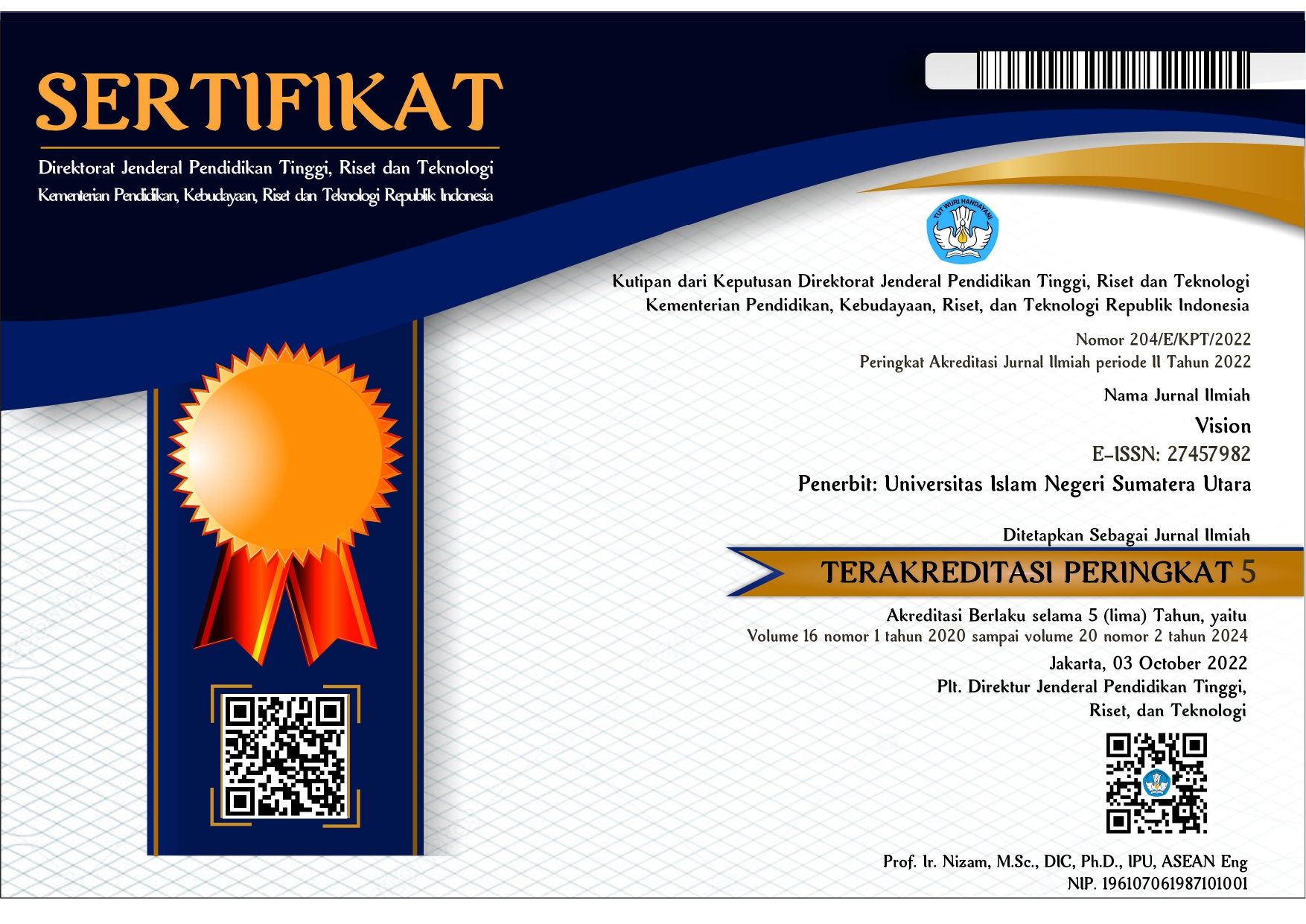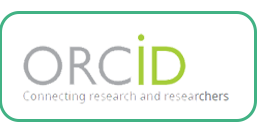- Focus and Scope
- Section Policies
- Peer Review Process
- Publication Frequency
- Open Access Policy
- Publication Ethics and Malpractice Statement
- Author fees
Focus and Scope
VISION is focused on research on English language education within sub categories:
- English Language Teaching and Learning
- English Language Curriculum Practice dan Development
- Implementation of Technologies in English Language Teaching and Learning
- English Language Testing and Evaluation
- EFL Teacher Education and Professional Development
Section Policies
Vol 18, No 1 (2022): VISION
Vol 16, No I (2020): VISION
Articles
Vol 16. No.II (2019): VISION
Peer Review Process
All research articles published in VISION undergo full peer review, key characteristics of which are listed below:
Submitted papers are evaluated by at least two anonymous reviewers for contribution, originality, relevance, and presentation (double blind review).
All publication decisions are made by the journals’ Editors-in-Chief on the basis of the reviews provided. The Editor shall inform author(s) of the results of the review as soon as possible, hopefully in 30 to 60 days.
Members of the Editorial Boards lend insight, advice and guidance to the Editors-in-Chief generally and to assist decision making on specific submissions
Managing Editors and Editorial Assistants provide the administrative support that allows Vision to maintain the integrity of peer review while delivering rapid turnaround and maximum efficiency to authors, reviewers and editors alike.
Vision additionally benefit through the manuscript referral process from the high quality peer review conducted by established journals.
Plagiarism detection of articles in this journal is carried out by using Turnitin.
Publication Frequency
VISION publish twice a year: June and December
Open Access Policy
This journal provides immediate open access to its content on the principle that making research freely available to the public supports a greater global exchange of knowledge.
Publication Ethics and Malpractice Statement
VISION is dedicated to following best practices on ethical matters, errors and retractions. The prevention of publication malpractice is one of the important responsibilities of the editorial board. Any kind of unethical behavior is not acceptable, and VISION does not tolerate plagiarism in any form. Authors submitting articles to VISION affirm that manuscript contents are original. Furthermore, they warrant that their article has neither been published elsewhere in any language fully or partly, nor is it under review for publication anywhere.
The following duties outlined for editors, authors, and reviewers are based on the COPE Code of Conduct for Journal Editors.
Section A: Publication and authorship
All submitted papers are subject to strict peer-review process by a reviewer that are experts in the area of the particular paper.
Review process are blind peer review.
The factors that are taken into account in review are relevance, soundness, significance, originality, readability and language.
The possible decisions include acceptance, acceptance with revisions, or rejection.
If authors are encouraged to revise and resubmit a submission, there is no guarantee that the revised submission will be accepted.
Rejected articles will not be re-reviewed.
The paper acceptance is constrained by such legal requirements as shall then be in force regarding libel, copyright infringement and plagiarism.
No research can be included in more than one publication.
Section B: Authors’ responsibilities
Authors must certify that their manuscripts are their original work.
Authors must certify that the manuscript has not previously been published elsewhere.
Authors must certify that the manuscript is not currently being considered for publication elsewhere.
Authors must participate in the peer review process.
Authors are obliged to provide retractions or corrections of mistakes.
All Authors mentioned in the paper must have significantly contributed to the research.
Authors must state that all data in the paper are real and authentic.
Authors must notify the Editors of any conflicts of interest.
Authors must identify all sources used in the creation of their manuscript.
Authors must report any errors they discover in their published paper to the Editors.
Section C: Reviewers’ responsibilities
Reviewers should keep all information regarding papers confidential and treat them as privileged information.
Reviews should be conducted objectively, with no personal criticism of the author
Reviewers should express their views clearly with supporting arguments
Reviewers should identify relevant published work that has not been cited by the authors.
Reviewers should also call to the Editor in Chief’s attention any substantial similarity or overlap between the manuscript under consideration and any other published paper of which they have personal knowledge.
Reviewers should not review manuscripts in which they have conflicts of interest resulting from competitive, collaborative, or other relationships or connections with any of the authors, companies, or institutions connected to the papers.
Section D: Editors’ responsibilities
Editors have complete responsibility and authority to reject/accept an article.
Editors are responsible for the contents and overall quality of the publication.
Editors should always consider the needs of the authors and the readers when attempting to improve the publication.
Editors should guarantee the quality of the papers and the integrity of the academic record.
Editors should publish errata pages or make corrections when needed.
Editors should have a clear picture of a research’s funding sources.
Editors should base their decisions solely one the papers’ importance, originality, clarity and relevance to publication’s scope.
Editors should not reverse their decisions nor overturn the ones of previous editors without serious reason.
Editors should preserve the anonymity of reviewers.
Editors should ensure that all research material they publish conforms to internationally accepted ethical guidelines.
Editors should only accept a paper when reasonably certain.
Editors should act if they suspect misconduct, whether a paper is published or unpublished, and make all reasonable attempts to persist in obtaining a resolution to the problem.
Editors should not reject papers based on suspicions, they should have proof of misconduct.
Editors should not allow any conflicts of interest between staff, authors, reviewers and board members.
Author fees
ARTICLE SUBMISSION:
0.00 (IDR) Authors ARE NOT REQUIRED to pay an Article Submission Fee as part of the submission process. This part of APC or Article Processing Charge is Free.
ARTICLE PUBLICATION:
0.00 (IDR) (for Indonesian author) & $ 0 (for Foreign author) If this paper is accepted for publication, article publishing is free of charge.
















